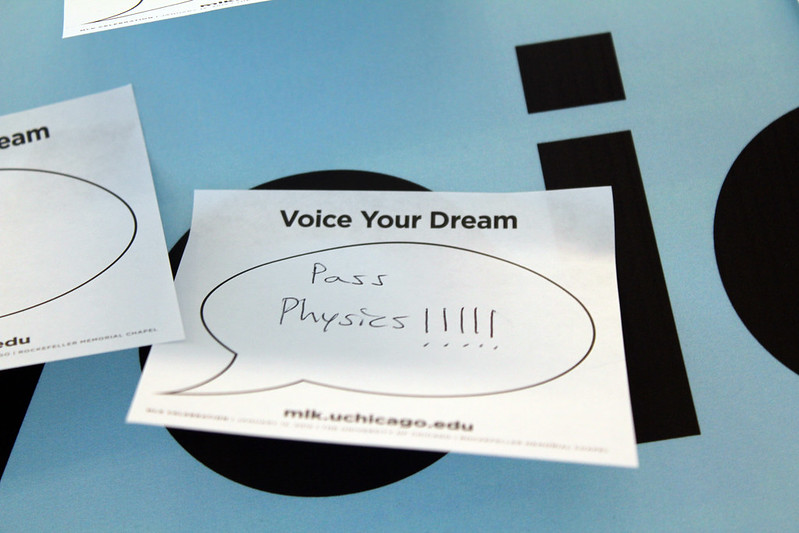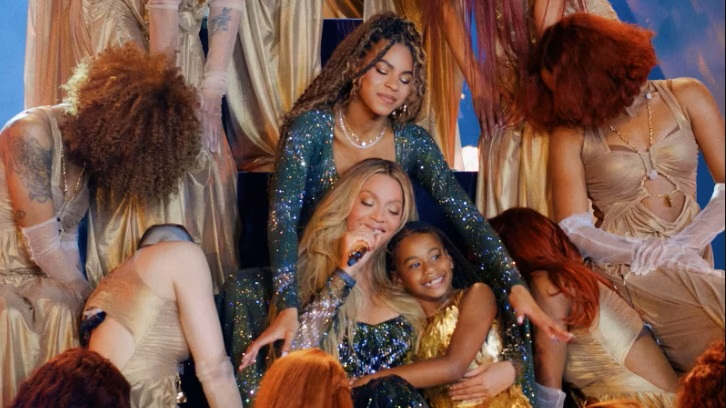Aaron Jones | Correspondent
Last month, Beyoncé Knowles-Carter shocked both fans and the music industry alike when she unexpectedly released Beyoncé, her record-breaking fifth studio album. Exploring themes of explicit sexuality, beauty and motherhood, the artist shares her interpretation of feminism in an visually unconventional format.
The surprise album’s 14 songs and 17 corresponding videos sparked frenzy amongst fans across the world by employing a technique that is unheard of in the music industry. The release of an album with no promotion or release of any singles. In today’s digital age, Knowles-Carter also managed to combine the talents of an incredible ensemble. Her album included including heavy-hitters such as Justin Timberlake, Timbaland, and Pharrell Williams as producers, legendary video directors Hype Williams and Jake Nava, as well as Grammy-nominated songwriters The-Dream and Sia. In spite of the use of these ‘big names’ in the industry she was still able to avoid the early leak of her project. This was the singer’s plan for the album all along – wanting to release the project in entirety as a “surprise.”

The bombshell of an album quickly generated massive success and critical acclaim. Three days after its release, Beyoncé rose to the top spot on the Billboard 200 chart, sold 617,000 copies in the U.S. and 828,773 copies worldwide. This snagged the songstress the largest sales week for a woman in 2013, as well as the fastest-selling title ever globally, according to Billboard. USA Today credited the album as “a feast for the eyes and the ears.”
Along with its commercial success, Beyoncé has also stirred up its share of controversy. The album, which comes with an “explicit content” warning, surely is the singer’s most sexually explicit work. Knowles-Carter paints racy images with risqué lyrics as she raps alongside husband Jay-Z on the hip-hop influenced track “Drunk in Love” and channels Too Short and E-40 on “Partition.” She also shows off her versatility as she sultrily harmonizes with Frank Ocean on “Superpower,” and showcases an entrancing falsetto on “No Angel.” With her approach, the singer has a way of adding a combined level of sophistication and eroticism with songs like “Rocket” written by Miguel, and is more vulnerable than ever, being vocal about the importance of self-acceptance in “Pretty Hurts”, written by Sia. The album’s overt sexuality has also generated discussion on the pro-feminism messages the superstar is sending.
Throughout the album the singer addresses social issues experienced by women such as marriage, motherhood, sexuality, and beauty – shamelessly exposing herself as a woman with power that is not dependent on a man. She also highlights the need for camaraderie amongst women. This can especially be seen in “Flawless,” a track that samples a portion of a 2013 speech “We Should All Be Feminists,” by Nigerian author and feminist Chimamanda Ngozi Adichie. Adichie explicitly defines a feminist as “the person who believes in the social, political and economic equality of the sexes.”
Critics are saying the inclusion of this sample does not make the singer a feminist. In an essay for IndieWire, media analyst and feminist Tanya Steele wrote, “I understand the identification with Beyoncé as a beautiful and fierce Black woman. Let’s celebrate that. What I don’t understand is how her actions translate to Feminism. Historically, Black women are known for being two things: angry and libidinous. How does Beyoncé present a challenge to the latter?”

Some feminists like Steele argue that the artist’s efforts are counterproductive. “Now, there are these women coming into the conversation who have never read anything about feminism and they’re like, ‘she’s a grown woman. She has a husband. She can do what she wants with her body.’ So I have to walk them through to perhaps a different way of thinking about the images,” said Steele. Others, such as Kim Gandy former president of the National Organization for Women, are glad the ideas of feminism have been imparted to mainstream audiences: “I’m excited that millions of people around the world are gonna hear ‘We Should All Be Feminists,’ coming from someone they love and trust: Beyoncé.” Writer Samhita Mukhopadhyay said “The majority of women that need feminism listen to Beyoncé,” and is also in favor of the album’s unconventional appeal.
In a high-profile position like Beyoncé’s, her work inevitably will cause this kind of polarity with social issues. One thing is evident – with a historic album making her the first woman to have her first five studio albums to go No. 1, the success of her Mrs. Carter World Tour and Forbes reporting 2014 to be the singer’s best fiscal year ever, she seems to be defending the title of “Queen Bey,” solidifying herself as a force in the industry.





